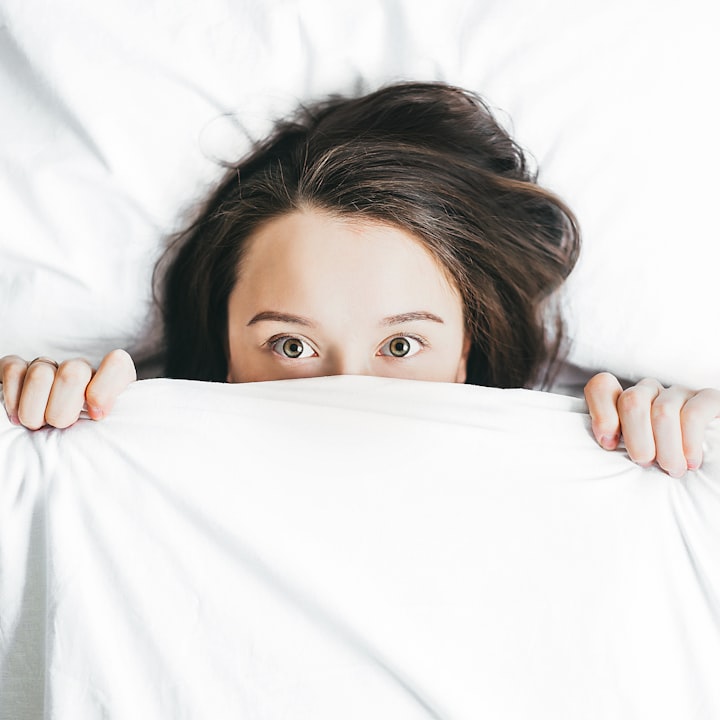12 Strange Behaviors That Affect How Much Sleep You Get
did you know that there are things you do during the day that can affect how well you sleep at night?

It’s no secret that sleep is important for our health. We’ve all been there – feeling exhausted after a sleepless night. But did you know that there are things you do during the day that can affect how well you sleep at night?
Here are 12 strange behaviors that can affect how much sleep you get.
1. You’re a heavy coffee drinker
Coffee is a stimulant, so it’s no surprise that it can affect your sleep. If you drink coffee late in the day, it can make it harder for you to fall asleep at night.
And if you’re a heavy coffee drinker, you may find that you need more coffee to stay awake during the day.
2. You eat late at night
Late-night eating is a common habit among humans, and it can have some negative effects on our sleeping habits. When we eat late at night, our bodies are working to digest the food we've consumed.
This process can take up to two hours, and it can interfere with our sleep cycle. In addition, if we overindulge in late-night snacks, we may be more likely to gain weight or experience other health problems.
If you're struggling to get a good night's sleep because of your late-night eating habits, try avoiding processed foods and heavy meals close to bedtime.
Instead, make sure to include healthy snacks in your diet throughout the day.
3. You drink alcohol before bed
There are many people who believe that drinking alcohol prior to bedtime can have a negative impact on one's sleep.
Many experts feel that alcohol can disrupt the natural sleep rhythm, which can make it difficult to get to sleep and wake up feeling refreshed.
Additionally, overindulging in alcohol before bed may lead to difficulty concentrating during the night and disturbed REM cycles, which is crucial for a good night's sleep.
4. You smoke cigarettes

You smoke cigarettes and you know it’s bad for your health. But does smoking really affect your sleeping habits? Recent studies suggest that smoking may actually be a key factor in disrupted sleep patterns.
Smoking cigarettes has been linked to an increased risk of developing chronic obstructive pulmonary disease (COPD), which is the most common type of lung cancer.
Smoking also increases the risk of stroke, coronary heart disease, lung cancer, and other diseases.
Studies have shown that smokers who sleep less are more likely to develop COPD.
Studies have also found that people who smoke and have trouble breathing at night are more likely to experience poor sleep quality and decreased daytime productivity.
Poor sleep can lead to obesity, diabetes, high blood pressure, depression, and other health problems.
5. You’re stressed
Stress can make it harder to fall asleep and stay asleep. If you’re stressed, you may find yourself tossing and turning at night.
6. You have a medical condition
Certain medical conditions can make it harder to sleep. For example, people with anxiety disorders or depression may find it hard to sleep.

7. You take medication
Certain medications can make it hard to sleep. For example, some antidepressants and blood pressure medications can cause insomnia.
8. You have a sleep disorder
If you have a sleep disorder, you may find it hard to sleep. Sleep disorders include conditions like insomnia, sleep apnea, and restless leg syndrome.
9. You’re pregnant
Pregnancy can make it hard to sleep. As your pregnancy progresses, you may find it harder to sleep on your stomach or back. And you may need to go to the bathroom more often.

10. You have young children
If you have young children, you may find it hard to sleep. Children tend to wake up in the night, and they may not let you sleep in.
11. You work night shifts
Working night shifts can make it hard to sleep. If you work at night, you may find yourself sleeping during the day.
12. You travel often
If you travel often, you may find it hard to sleep. Travel can disrupt your sleep schedule, and you may find yourself in different time zones.
In conclusion, here are some strange behaviors that can affect how much sleep you get. If you're experiencing any of these symptoms, it might be a good idea to talk to your doctor or sleep specialist to figure out what's causing them and how best to treat them.
About the Creator
Alain Saamego
Software engineer , Writer and Content Strategist at Selfgrow.co.uk
I'm a technology enthusiast, and I love learning about upcoming technologies. I also enjoy teaching and answering questions about new technologies.






Comments
Alain Saamego is not accepting comments at the moment
Want to show your support? Send them a one-off tip.